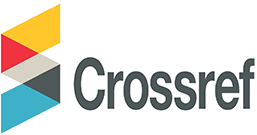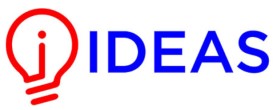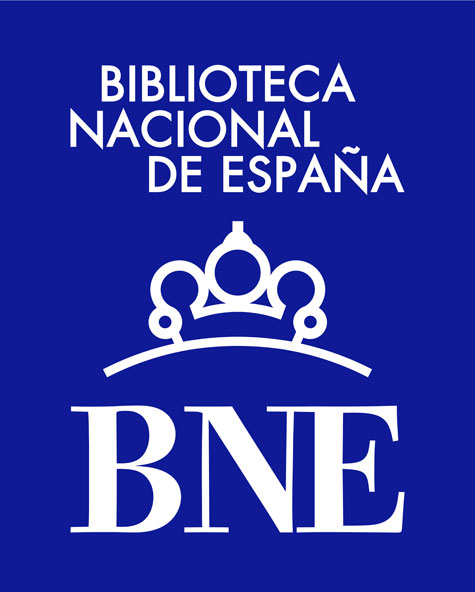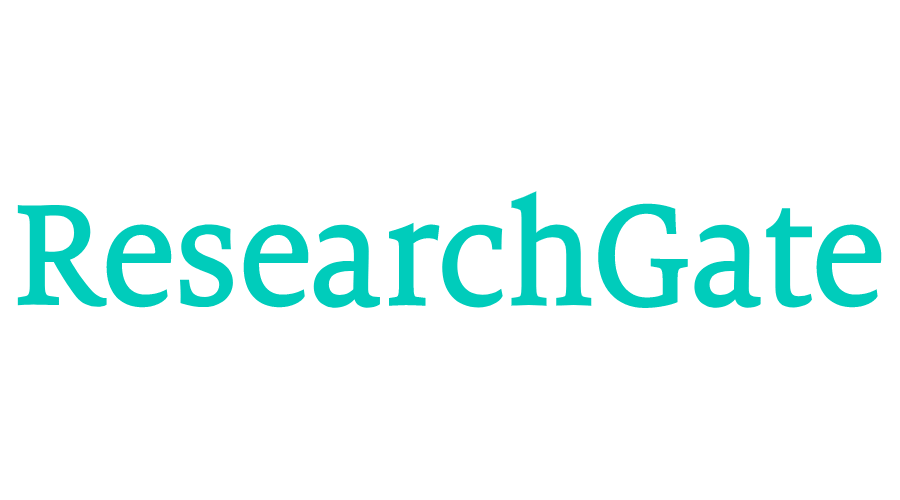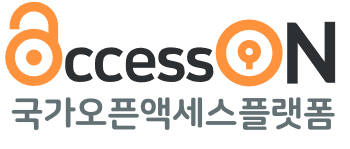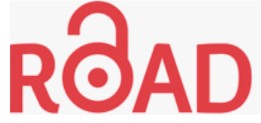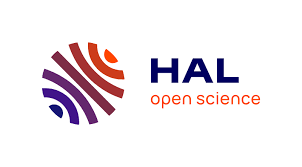Resignificando las vulnerabilidades de la escritura académica en mujeres
DOI:
https://doi.org/10.51896/easc.v2i2.709Palabras clave:
feminismo, escritura, igualdad de género, universidad, resistencia a la opresiónResumen
Este estudio revisa cómo las académicas enfrentan los efectos del capitalismo académico y las estructuras patriarcales, que les imponen presiones de productividad y competitividad, conduciendo a silenciamientos y autocensuras. El objetivo es explorar las experiencias narradas de mujeres académicas en torno a una escritura académica que se da en un contexto de altas presiones y capitalismo académico. La investigación sigue una metodología cualitativa basada en memory work, analizando experiencias personales y colectivas de cinco académicas en una universidad pública chilena. Se usó el kintsugi como metáfora para resignificar “fracturas” en narrativas, integrando vulnerabilidades y fortaleza. Los resultados se organizan en dos fases. La primera presenta fragmentos de experiencias de silenciamiento y autocensura. La segunda fase muestra una narrativa integrada que resignifica estos momentos como una red de apoyo mutuo y resistencia frente a las estructuras de poder en la academia. Las académicas participantes transforman sus experiencias de exclusión en conocimiento colectivo, revelando cómo las estructuras patriarcales y neoliberales imponen barreras, pero también destacando la capacidad de generar resistencia y apoyo. Este trabajo contribuye a visibilizar la escritura feminista y situada como una forma de resistencia frente a las normativas hegemónicas de la academia.
Descargas
Citas
Abdellatif, A., Gatto, M., O'Shea, S., & Yarrow, E. (2021). Ties that bind: An inclusive feminist approach to subvert gendered “othering” in times of crisis. Gender, Work & Organization, 31(4), 1463-1478. https://doi.org/10.1111/gwao.12752
Alkhatib, M., Hasan, I., Ali, A., & Zaidi, Z. (2024). Unveiling the invisible: Challenges faced by Arab women international medical graduates in U.S. academia. Academic Medicine, 99(11), 1199-1209. https://doi.org/10.1097/ACM.0000000000005822
Alvero, A.J., Peña, C., Moore, A.R., Luqueño, L., Barron, C.B., Steele, L., Eberle, S., & Botham, C.M. (2024). Time to degree, identity, and grant writing: Lessons learned from a mixed-methods longitudinal case study of biosciences PhD students. SAGE Open, 31(4), 1-13. https://doi.org/10.1177/21582440241253662
Araneda-Guirriman, C.A., & Sepúlveda-Páez, G.L. (2021). Reflexiones sobre los desafíos que enfrentan las académicas en el contexto del capitalismo académico. Formación Universitaria, 14(5), 75-84. https://doi.org/10.4067/S0718-50062021000500075
Arboledas-Lérida, L. (2021). ¿Mercantilización’, ‘comercialización’ o ‘privatización’? Economía política de la ciencia para comprender los cambios en la financiación de la actividad científica. Revista de Economía Crítica, 2(26), 66-81. https://revistaeconomiacritica.org/index.php/rec/article/view/200
Baek, C., Tate, T., & Warschauer, M. (2024). “ChatGPT seems too good to be true”: College students’ use and perceptions of generative AI. Computers and Education: Artificial Intelligence, 7, 1-9. https://doi.org/10.1016/j.caeai.2024.100294
Borsani, M.E. (2024). Trazos de neocolonialismo académico en Argentina en el pasado reciente y en el presente inmediato. En-Claves del Pensamiento, 36, 85-104. https://doi.org/10.46530/ecdp.v0i36.678
Castelló, M., Corcelles, M., Iñesta, A., Bañales, G., & Vega, N. (2011). La voz del autor en la escritura académica: Una propuesta para su análisis. Revista Signos, 44(76), 105-117. https://doi.org/10.4067/S0718-09342011000200001
Coronado-López, S.P. (2021). La escritura académica en la formación universitaria. Educare et Comunicare: Revista de investigación de la Facultad de Humanidades, 9(2), 5-16. https://doi.org/10.35383/educare.v9i2.653
Dahmen-Adkins, J., & Peterson, H. (2021). Micro change agents for gender equality: Transforming European research performing organizations. Frontiers in Sociology, 6, 1-12. https://doi.org/10.3389/fsoc.2021.741886
Dolgaleva, E. (2024). Emotional labour of university teachers in the context of academic capitalism: Therapeutic ethos and communication norms and practices with students (Case study of two universities). The Journal of Social Policy Studies, 22(1), 79-90. https://doi.org/10.17323/727-0634-2024-22-1-79-90
Gatto, M., Tracey, H., Callahan, J.L., & Worst, S. (2024). Inconvenient academic workers? Collective (Re)humanisation through the dialogue of a Freirean Reading Circle. Culture and Organization, 1-20. https://doi.org/10.1080/14759551.2024.2399619
Gibb, R. (2024). Re-learning hope: On alienation, theory and the ‘death’ of universities. The Sociological Review, 72(4), 914-929. https://doi.org/10.1177/00380261241258617
Hernández-Vargas, E., & Marín-Cano, M.L. (2018). La escritura académica en contexto: posibilidad de desarrollo profesional de profesores universitarios. Cuadernos de Lingüística Hispánica, (32), 61-84. https://doi.org/10.19053/0121053X.n32.2018.8119
Hostler, T. J. (2024). Open research reforms and the capitalist university: Areas of opposition and alignment. Collabra: Psychology, 10(1), 1-22. https://doi.org/10.1525/collabra.121383
Li, J., Zong, H., Wu, E., Wu, R., Peng, Z., Zhao, J., Yang, L., Xie, H., & Shen, B. (2024). Exploring the potential of artificial intelligence to enhance the writing of English academic papers by non-native English-speaking medical students: The educational application of ChatGPT. BMC Medical Education, 24, 1-8. https://doi.org/10.1186/s12909-024-05738-y
Johnson, J.A., & Taylor, B.J. (2019). Academic capitalism and the faculty salary gap. Innovative Higher Education, 44(1), 21-35. https://doi.org/10.1007/s10755-018-9445-z
Jones, K., & Floyd, A. (2024). Women academics' experiences of maternity leave in the neoliberal university: Unmasking governmentality. Gender, Work & Organization, 31(1), 92-114. https://doi.org/10.1111/gwao.13059
Knipp, R. (2024). Digital scholarship from the periphery: Insights from researchers in Chile on Academia.edu and ResearchGate. Journal of Interactive Media in Education, 2024(1), 1-14. https://doi.org/10.5334/jime.856
Kociatkiewicz, J., & Kostera, M. (2023). Writing differently: On the constraints and possibilities of presenting research rooted in feminist epistemologies. Gender, Work & Organization, 31(1), 284-304. https://doi.org/10.1111/gwao.13072
Ma, Y., Teng, Y., Deng, Z., Liu, L., & Zhang, Y. (2023). Does writing style affect gender differences in the research performance of articles?: An empirical study of BERT-based textual sentiment analysis. Scientometrics, 128, 2105-2143. https://doi.org/10.1007/s11192-023-04666-w
dos Santos de Macedo, F., de Mozzi, G., & Antonio Dassoler, V. (2019). Transitar pela fresta: corporalidades e diferenças na escrita acadêmica. Revista Polis E Psique, 9(2), 187-204. https://doi.org/10.22456/2238-152X.92296
Mackinlay, E. (2023). Ordinary moments: Feminist notes from the academy. Journal of Autoethnography, 4(4), 441-455. https://doi.org/10.1525/joae.2023.4.4.441
Martínez-Labrín, S., & Castelao-Huerta, I. (2023). Narrativas de subjetivación en académicas de Chile y Colombia: neoliberalismo y género en la universidad. Quaderns de Psicologia, 25(2), 1-22. https://doi.org/10.5565/rev/qpsicologia.1910
Mickey, E.L., & Smith-Doerr, L. (2022). Gender and innovation through an intersectional lens: Re-imagining academic entrepreneurship in the United States. Sociology Compass, 16(3), 1-15. https://doi.org/10.1111/soc4.12964
Montes, I.C., García-Callejas, D., & Ocampo-Salazar, C. (2023). Faculty promotion policy and the academic capitalist regime: Professors’ actions in two Colombian academic departments. Higher Education Policy, 36, 804-825. https://doi.org/10.1057/s41307-022-00289-7
Ortiz, E. M. (2011). La escritura académica universitaria: estado del arte. Íkala. Revista de lenguaje y cultura, 16(28), 17-41. https://doi.org/10.17533/udea.ikala.7815
Parada, A. E. (2020). Revisitando la escritura académica en Bibliotecología y Ciencia de la Información: ¿Formalismo versus apertura? Información, Cultura y Sociedad, 42, 5-10. https://doi.org/10.34096/ics.i42.7991
Peterson, H., & Husu, L. (2023). Online panel work through a gender lens: Implications of digital peer review meetings. Science and Public Policy, 50(3), 371-381. https://doi.org/10.1093/scipol/scac075
Peterson, H. (2014). An academic ‘glass cliff’? Exploring the increase of women in Swedish higher education management. Athens Journal of Education, 1(1), 33-44. https://doi.org/10.30958/aje.1-1-3
Peterson, H. (2015). “Unfair to women”? Equal representation policies in Swedish academia. Equality, Diversity and Inclusion: An International Journal, 34(1), 55-66. https://doi.org/10.1108/EDI-09-2013-0070
Pomares-Cintas, E., & Álvarez-García, F.J. (2020). La adaptación al Espacio Europeo de Educación Superior, 13 años después: la destrucción del saber en las universidades españolas. EUNOMÍA. Revista en Cultura de la Legalidad, (19), 184-213. https://doi.org/10.20318/eunomia.2020.5708
Rawat, S., Kumar, P., & Wadhwa, L. (2024). Gender diversity in the editorial boards of global obstetrics and gynecology journals. Asian Bioethics Review, 1-15. https://doi.org/10.1007/s41649-024-00298-1
Ridgway, M., Edwards, M., & Oldridge, L. (2024). Writing differently: Finding beauty in the broken. Gender, Work & Organization, 31(6), 2768-2786. https://doi.org/10.1111/gwao.13125
Robinson, R.L., & Del Rio, M.G. (2023). “Act up, you can get snatched up”: Critical reflections on counterstorytelling and healing justice as paths to decoloniality. Peace and Conflict: Journal of Peace Psychology, 29(2), 178-183. https://doi.org/10.1037/pac0000668
Rogošić, S. (2024). Professional alienation of academics: Qualitative analysis. Italian Journal of Sociology of Education, 16(2), 67-90. https://ijse.padovauniversitypress.it/2024/2/4
Rossi-Peralta, M. (2023). Dificultades sociodiscursivas para la escritura académica en estudiantes universitarios de pregrado y posgrado. Lengua y Sociedad, 22(2), 335-356. https://doi.org/10.15381/lengsoc.v22i2.23883
Sagredo-Ortiz, S.M., Tapia-Ladino, M.I., & Kloss, S.F. (2023). La escritura académica desde el discurso docente en cuatro áreas disciplinares de una universidad chilena. Formación Universitaria, 16(5), 17-26. https://doi.org/10.4067/S0718-50062023000500017
Sharp, E.A., & Messuri, K. (2023). A reprieve from academia’s chilly climate and misogyny: The power of a feminist, women-centered faculty writing program. Gender, Work & Organization, 30(4), 1236-1253. https://doi.org/10.1111/gwao.12967
Shore, C. (2024). Management consultants and university futures: Academic capitalism and the capture of UK public higher education. Public Money & Management, 1-10. https://doi.org/10.1080/09540962.2024.2364284
Shulgina, G., Costley, J., Shcheglova, I., Zhang, H., & Sedova, N. (2024). Online peer editing: The influence of comments, tracked changes, and perception of participation on students’ writing performance. Smart Learning Environments, 11, 1-19. https://doi.org/10.1186/s40561-024-00315-8
Sinclair, E.S.L., & Clark, L. (2024). Gender gaps in publications and citations in gambling studies: Comparisons against addiction science. Psychology of Addictive Behaviors, 38(6), 696-703. https://doi.org/10.1037/adb0000985
Sümer, S., & Eslen-Ziya, H. (2022). Academic women’s voices on gendered divisions of work and care: “Working till I drop... then dropping”. European Journal of Women's Studies, 30(1), 49-65. https://doi.org/10.1177/13505068221136494
Thun, C. (2019). Excellent and gender equal? Academic motherhood and ‘gender blindness’ in Norwegian academia. Gender, Work & Organization, 27(2), 166-180. https://doi.org/10.1111/gwao.12368
Van Hilten, A., & Ruel, S. (2022). The Chihuahua and the Space Princess writing in the margins: Antenarratives of two (older) women early career academics. Gender, Work & Organization, 31(5), 2066-2094. https://doi.org/10.1111/gwao.12910
Waltzer, T., Pilegard, C., & Heyman, G. D. (2024). Can you spot the bot? Identifying AI-generated writing in college essays. International Journal for Educational Integrity, 20, 1-18. https://doi.org/10.1007/s40979-024-00158-3
Wu, C. (2023). The gender citation gap: Why and how it matters. Canadian Review of Sociology/Revue canadienne de sociologie, 60(2), 188-211. https://doi.org/10.1111/cars.12428
Zárate-Fabián, M. C. (2017). La escritura académica: dificultades y necesidades en educación superior. Revista Educación Superior, 2(1), 46-54. http://repositorio.umsa.bo/xmlui/handle/123456789/16196
Zhang, Y., Xiong, W., & Yue, Y. (2024). Involution life in the ivory tower: A Chinese university’s teacher perceptions on academic profession and well-being under the Double First-class Initiative. Asia Pacific Education Review, 1-13. https://doi.org/10.1007/s12564-024-10002-5
Descargas
Publicado
Cómo citar
Número
Sección
Licencia

Esta obra está bajo una licencia internacional Creative Commons Atribución-NoComercial 4.0.
Usted es libre de:
- Compartir — copiar y redistribuir el material en cualquier medio o formato
- Adaptar — remezclar, transformar y construir a partir del material
Bajo los siguientes términos:
- Atribución — Usted debe dar crédito de manera adecuada, brindar un enlace a la licencia, e indicar si se han realizado cambios. Puede hacerlo en cualquier forma razonable, pero no de forma tal que sugiera que usted o su uso tienen el apoyo de la licenciante.
- NoComercial — Usted no puede hacer uso del material con propósitos comerciales.





